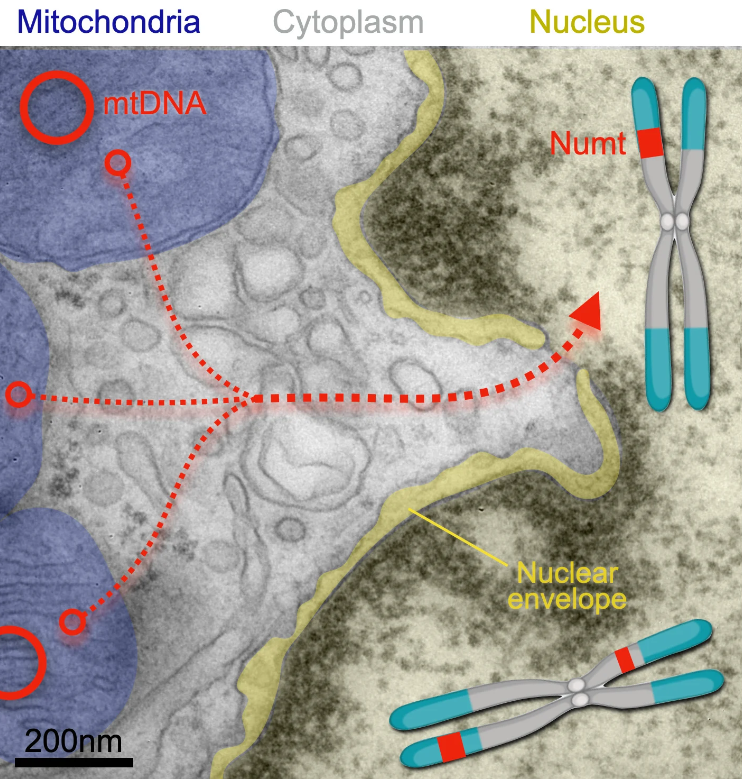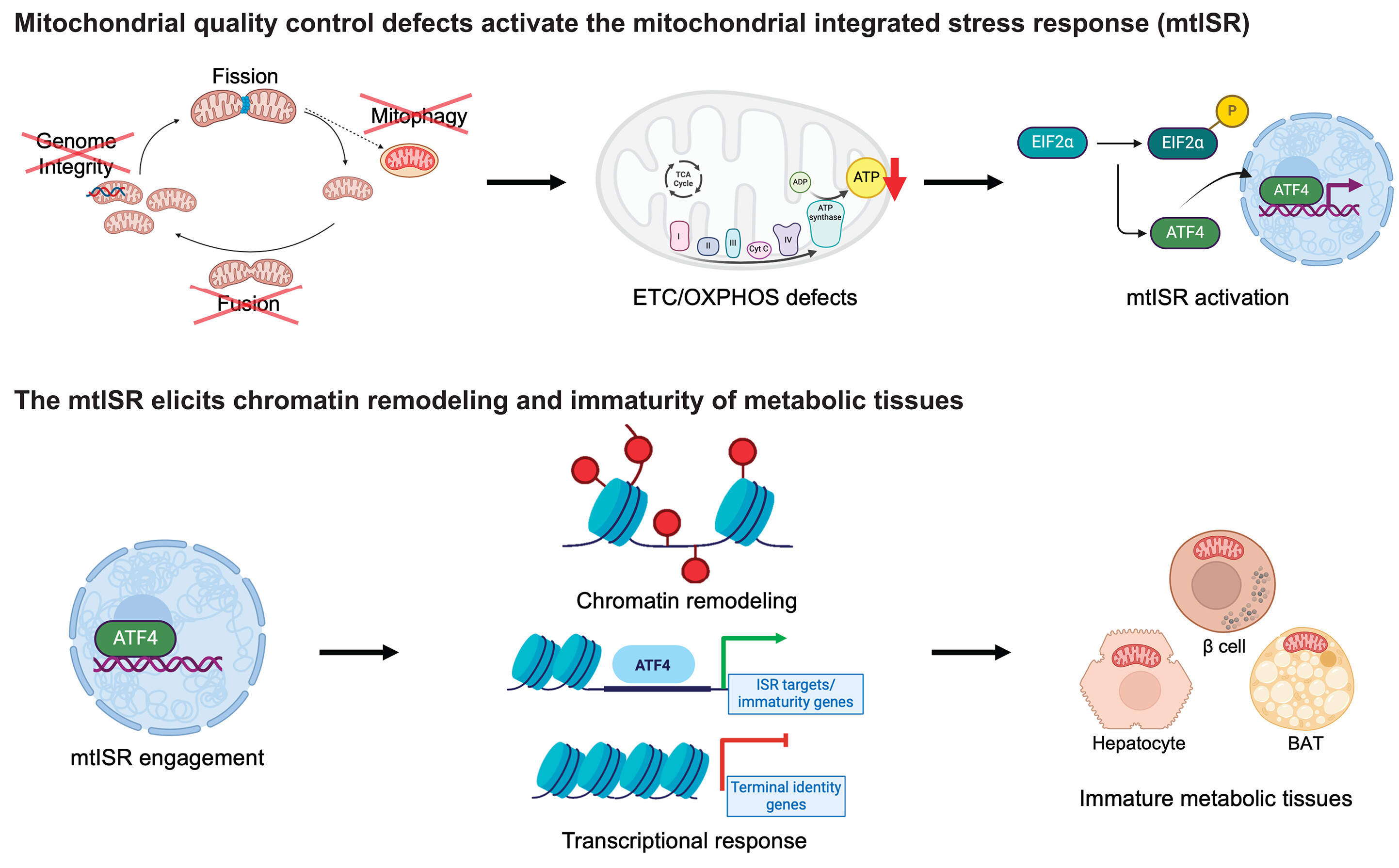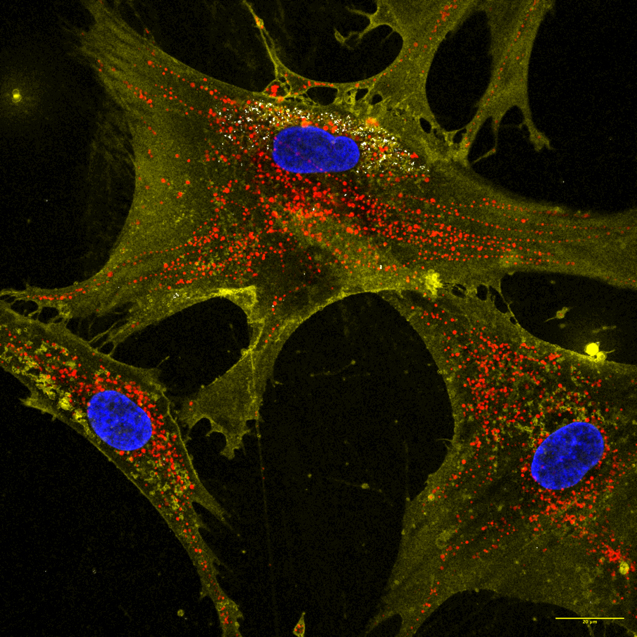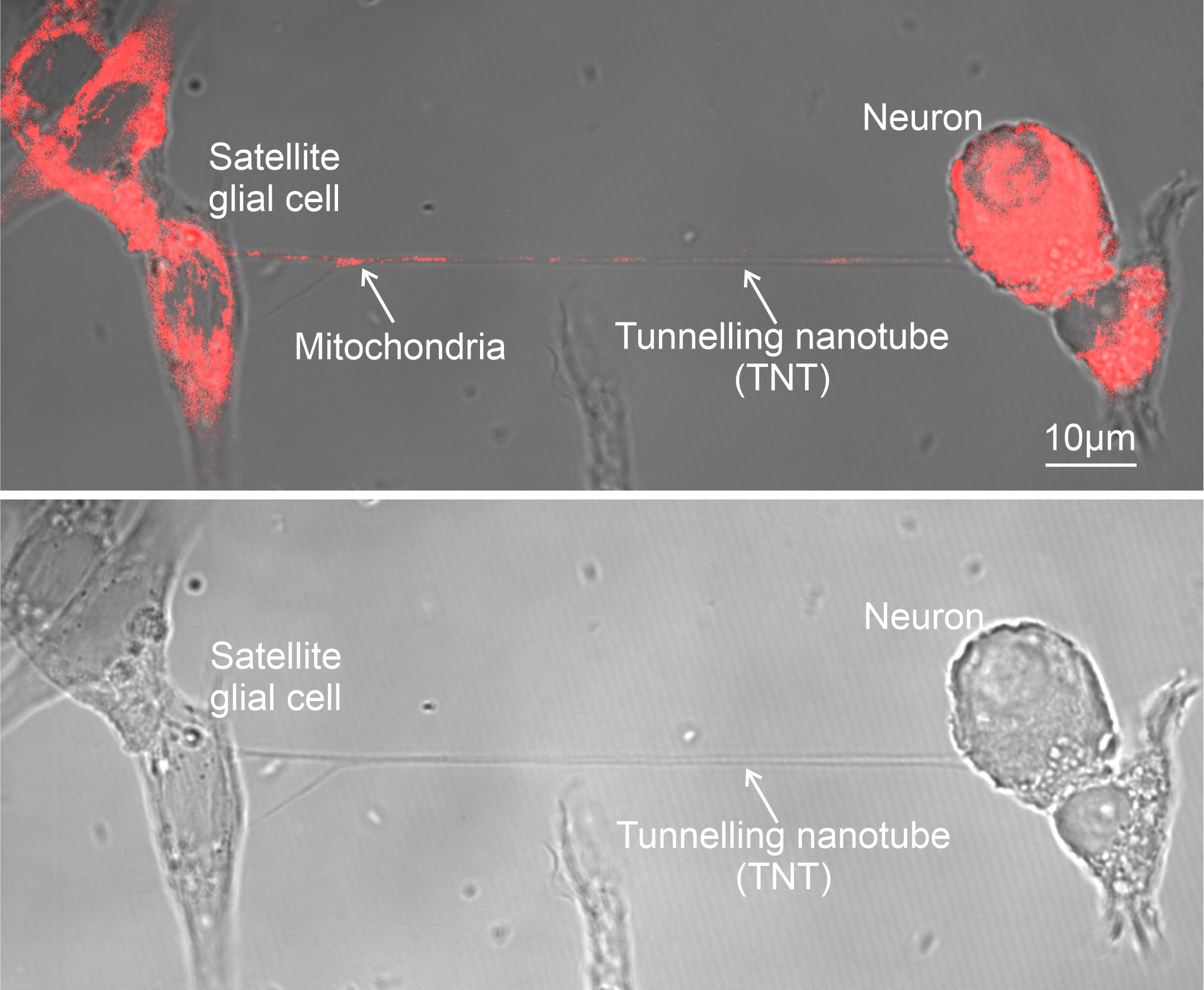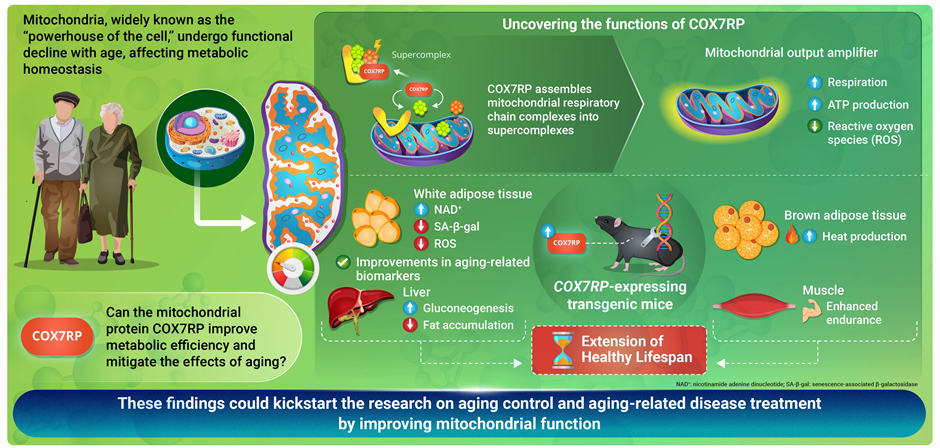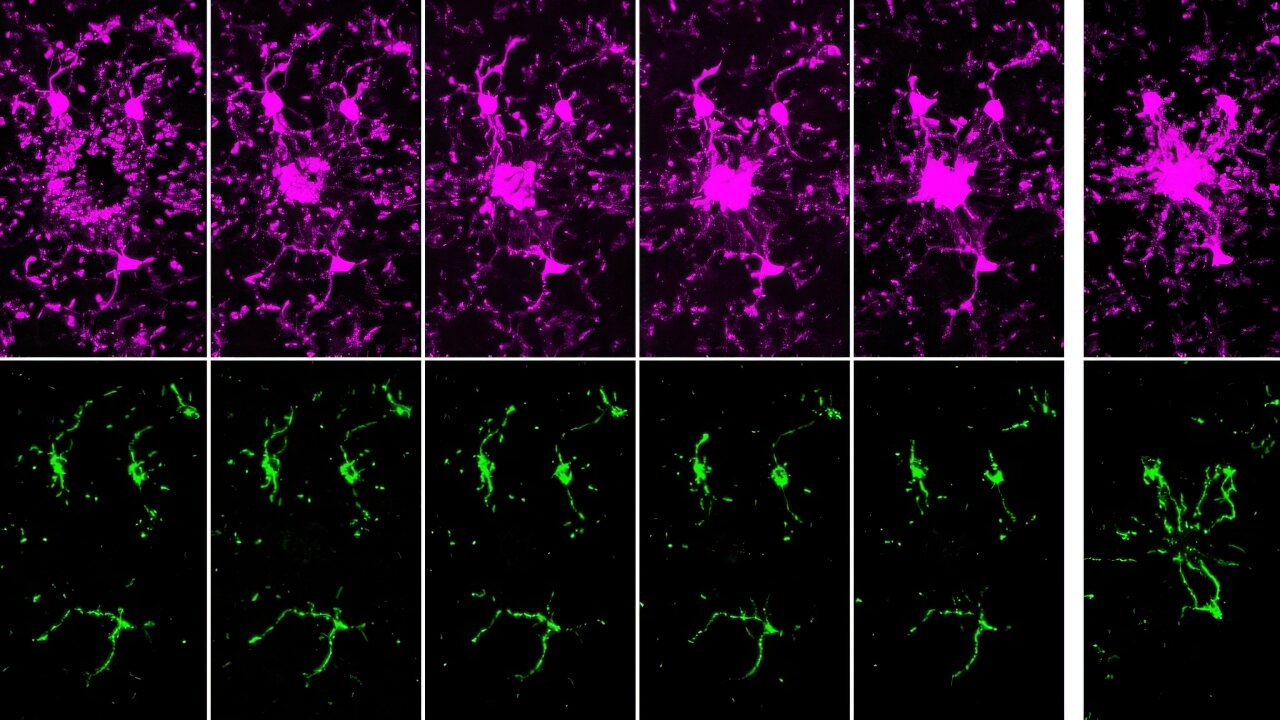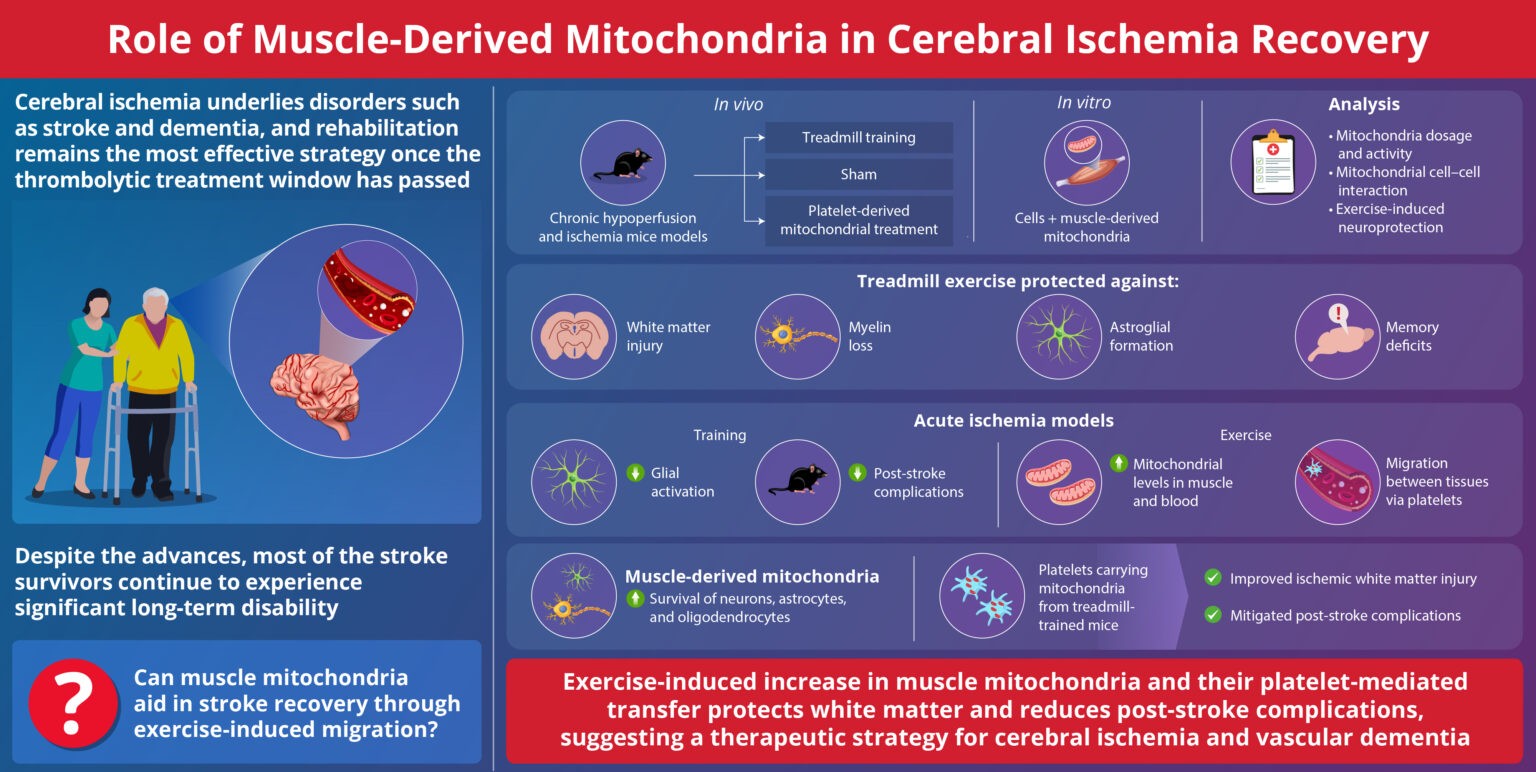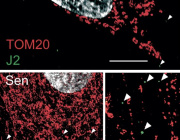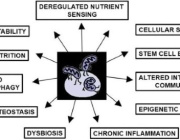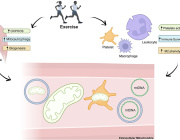Recent groundbreaking research reveals that mitochondria, the tiny powerhouses of our cells, frequently insert their DNA into the nucleus of brain cells. This surprising finding, led by scientists at Columbia University Irving Medical Center, suggests that these insertions may be harmful and could be linked to a shorter lifespan.
Mitochondria release segments of mitochondrial DNA that can travel through pores of the nucleus and integrate into a cell’s chromosomes (where the insertions are called NUMTs, for nuclear mitochochondrial segments). A new study has found that nuclear mitochondrial DNA insertion—once thought rare—happens in the human brain likely several times over during a person’s lifespan. Credit: Martin Picard laboratory at Columbia University Vagelos College of Physicians and Surgeons
Mitochondrial DNA and Its Insertion into Chromosomes
Mitochondria, which are descendants of ancient bacteria, contain their own DNA, separate from the DNA in the cell’s nucleus. These tiny organelles have long been known for their role in energy production, but recent studies show they can also send fragments of their DNA into the nucleus. Once there, this mitochondrial DNA can integrate into the chromosomes, where it may disrupt normal cellular functions.
Potential Impact on Lifespan
The study examined DNA from nearly 1,200 individuals and found that people with more mitochondrial DNA insertions in their brain cells tended to die earlier than those with fewer insertions. This finding suggests that the integration of mitochondrial DNA into nuclear DNA might play a role in aging and lifespan. Researchers discovered that these DNA insertions are particularly common in the brain’s prefrontal cortex, a region crucial for cognitive function.
The Role of Stress
Interestingly, the research also found that stress might accelerate this process. Experiments with cultured human cells showed that under stress, mitochondria were more likely to release DNA, which then integrated into the cell’s chromosomes at a much faster rate. This discovery adds a new dimension to our understanding of how stress can impact our health at the cellular level.
Broader Implications
This study opens up new avenues for research into how mitochondrial DNA affects not just energy production, but also how it may contribute to aging and disease. The findings suggest that mitochondrial DNA insertions could be a new factor in genome instability, influencing not only the health of brain cells but also potentially contributing to conditions like Alzheimer’s disease.
Join Targeting Mitochondria 2024 Congress this October in Berlin, where several international speakers will highlight recent research on mitochondrial dynamics and genome stability.
